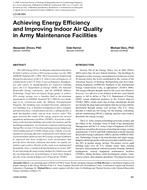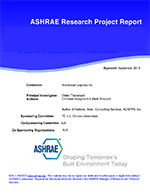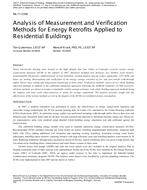In late 1999 the Commonwealth of Pennsylvania passed legislation to adopt one or more statewide building codes. In November 1999, Pennsylvania adopted the Uniform Construction Code (UCC) legislation into law, creating a statewide building code across Pennsylvania. Part of this act requires the state to develop regulations for prescriptive methods to implement residential building energy requirements. The Pennsylvania Housing Research Center (PHRC) at Penn State University developed a simpler and more flexible alternative chapter to replace the International Residential Code (IRC), Chapter 11, Energy Efficiency. This alternative includes trade-off tables that allow builders to use certain less energy-efficient components if their impact is balanced by more efficient practices elsewhere in the building. These alternative prescriptive paths and trade-offs were analyzed for energy use using PowerDOE, a powerful, visual-based version of DOE 2.1E. In all cases, the proposed alternative code results in a net reduction in energy use relative to the IRC. This paper describes the process and presents the results of the energy modeling.
Authors: Andrew S. Lau, P.E.; Mark R. Fortney; William P. Bahnfleth, Ph.D., P.E.; Eric F. P. Burnett, Ph.D., P.Eng.
Citation: Thermal Performance of the Exterior Envelopes of Buildings VIII
Keywords: December, Florida, 2001
Citation: Thermal Performance of the Exterior Envelopes of Whole Buildings VIII
Product Details
- Published:
- 2001
- File Size:
- 1 file , 550 KB
- Product Code(s):
- D-8044


